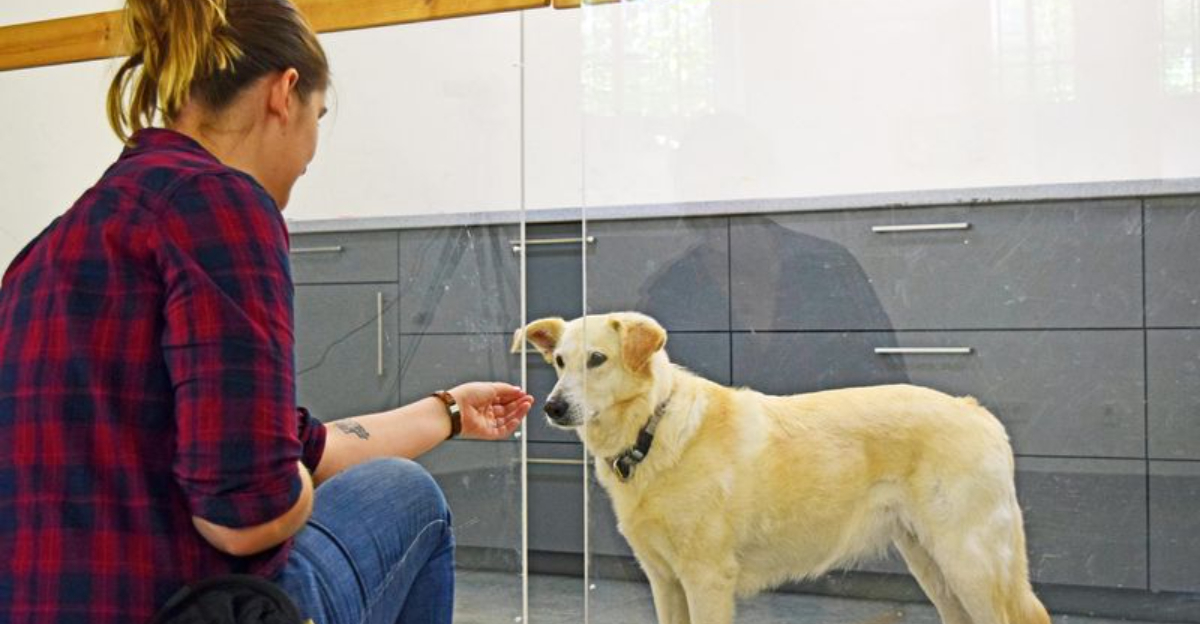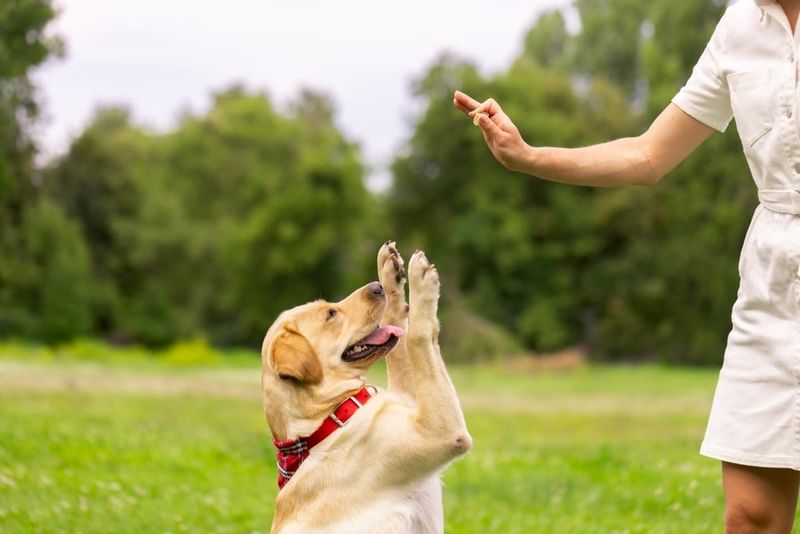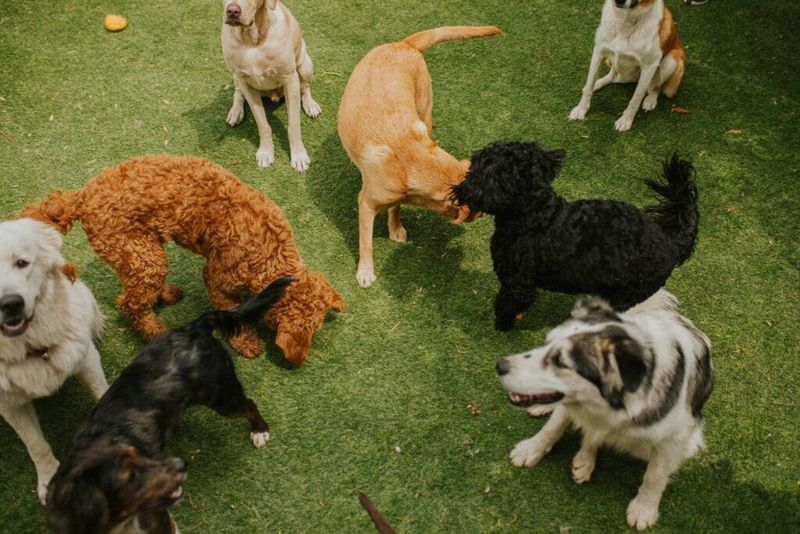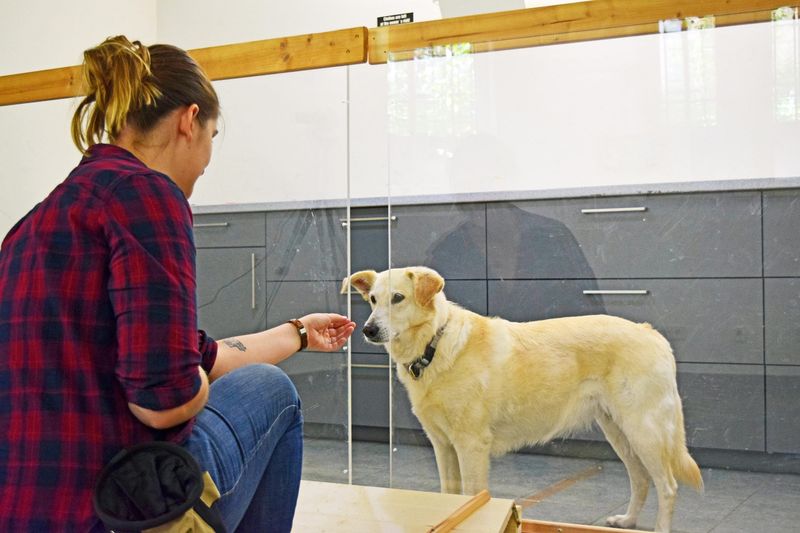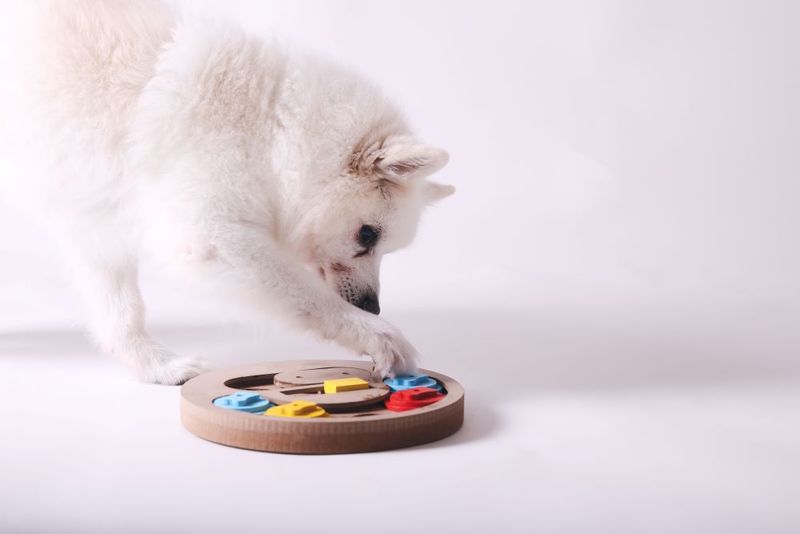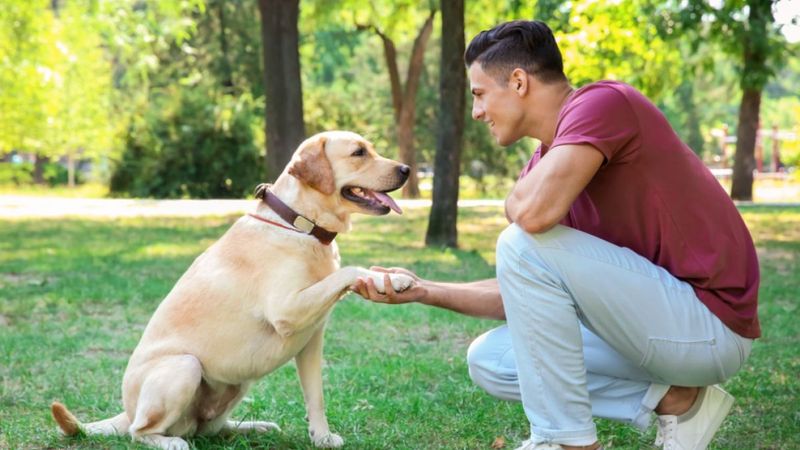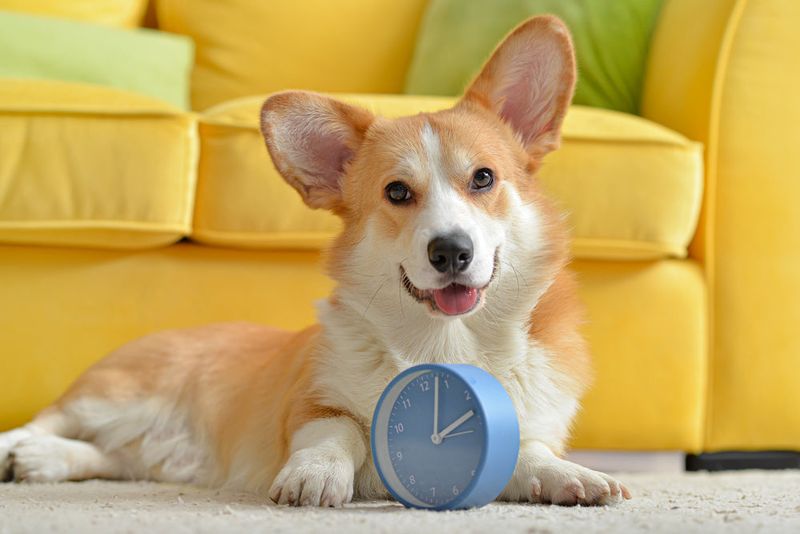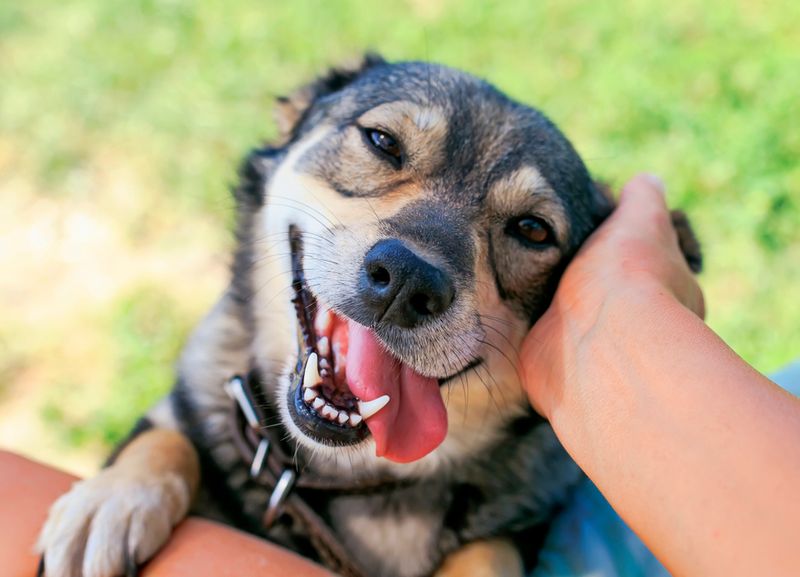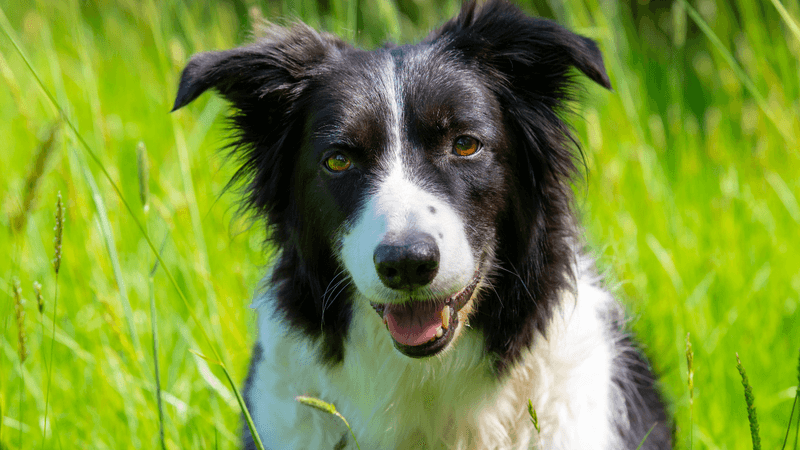Dogs have long been cherished as man’s best friend, but their intelligence often goes underestimated. From understanding complex commands to expressing empathy, dogs exhibit remarkable cognitive abilities that can surprise even the most seasoned pet owners. Let’s explore 14 compelling signs that your furry friend is smarter than you might think.
Expressive Communication
Every dog owner knows the look: a pair of soulful eyes gazing straight into yours, as if trying to communicate without uttering a word. This non-verbal dialogue is more than mere affection; it’s a sign of your dog’s keen ability to express and understand emotions.
Dogs use their expressive faces to convey needs, desires, and even empathy. Whether it’s a tilt of the head or a wagging tail, these gestures are packed with meaning.
Studies indicate that dogs can distinguish between happy and sad human expressions, showing their profound emotional intelligence.
Problem-Solving Skills
Ever wondered how your dog manages to sneak into the treat jar? It’s not just determination; it’s intelligence.
Dogs are natural problem solvers, using their sharp minds to overcome obstacles in pursuit of rewards. From figuring out how to open doors to solving puzzles for treats, their problem-solving skills are remarkable.
These clever canines often exhibit behaviors that reflect a deeper understanding of cause and effect, showcasing their ability to strategize. Such skills highlight their capability to adapt and thrive in various environments.
Emotional Empathy
With a gentle nuzzle or a comforting paw, dogs demonstrate an incredible ability to empathize with human emotions. This empathy is not just an anthropomorphic projection but a genuine emotional connection.
Dogs can sense distress and often react by offering comfort. Whether by laying their head on your lap or staying close, their empathetic responses are heartwarming.
Studies have shown that dogs can differentiate between various emotional states, adjusting their behavior accordingly. This emotional intelligence provides companionship and support, reinforcing their role as loyal confidants.
Understanding Human Commands
Dogs are not just good listeners; they’re intuitive learners. Recognizing over 100 words and commands, they often respond accurately to both verbal and non-verbal cues.
Beyond basic commands, many dogs understand complex instructions, adapting to their owners’ needs. This ability to comprehend and execute tasks is a testament to their intelligence and willingness to cooperate.
Training variability doesn’t deter them; they thrive on learning new tricks, showcasing their cognitive flexibility. Their capacity to understand human commands strengthens the bond between dog and owner, enhancing their shared experiences.
Social Intelligence
In the bustling environment of a dog park, canines display a remarkable ability to navigate social interactions.
Dogs possess social intelligence, allowing them to interpret and respond to the behaviors of other dogs and humans. Their ability to read social cues ensures harmonious play and prevents conflicts.
Through body language and vocalizations, they engage in complex social exchanges. This skill helps them form bonds and maintain relationships, not only with their kind but also with humans, making them adaptable companions in various social settings.
Adaptability to New Environments
When moving to a new place, dogs often adapt with remarkable ease. Their curiosity and resilience allow them to acclimate to different environments, from bustling cities to serene countryside.
This adaptability is a sign of intelligence, showing their ability to assess situations and adjust behavior. Whether it’s navigating around furniture or identifying safe spaces, dogs handle changes with grace.
Their ability to thrive in diverse environments speaks to their evolutionary success, providing companionship and comfort wherever they go, making them truly remarkable creatures.
Memory Retention
With an impressive memory, dogs often remember people, places, and events long after they occur. From recognizing familiar faces to recalling specific commands, their memory retention is remarkable.
This ability to remember extends beyond mere survival; it aids in forming lasting emotional connections. Whether it’s remembering where treats are hidden or recognizing a long-lost friend, their memory plays a crucial role in daily life.
Such cognitive skills highlight their evolutionary advancements and deepen the bond shared with their human companions.
Reading Human Intentions
Dogs have an uncanny ability to predict human actions, often understanding intentions before words are spoken. Their keen observation skills allow them to anticipate routines, such as recognizing cues for walks or meals.
This intuitive understanding showcases their ability to read human behavior and respond accordingly. Whether it’s fetching a leash or waiting by the door, dogs exhibit an awareness of upcoming activities.
Their talent for reading intentions reinforces their role as attentive and responsive companions, always ready to join in life’s adventures.
Advanced Play Patterns
Playtime is more than fun; it’s a display of intelligence. Dogs create advanced play patterns, engaging in games that require strategic thinking and coordination.
From playing fetch with variations to inventing new games, their creativity knows no bounds. These activities aren’t mere entertainment; they serve as mental stimulation, enhancing their cognitive abilities.
Play fosters problem-solving skills and social interaction, showcasing their intelligence in a joyful manner. Through play, dogs express themselves, learn new skills, and build strong connections with their human partners.
Tool Use
While tool use is often associated with primates, some dogs exhibit this remarkable ability too. Using objects like sticks or ropes, they solve problems and achieve desired outcomes.
This behavior demonstrates not only intelligence but also innovation. By using tools, dogs show an understanding of their environment and how to manipulate it for their benefit.
This ingenuity reflects an advanced level of cognitive functioning, highlighting the diverse ways in which dogs can interact with the world around them.
Learning from Observation
Dogs are adept at learning through observation, often picking up new skills by watching others. This form of learning showcases their ability to mimic and adapt behaviors.
Whether it’s observing another dog perform a trick or watching humans complete tasks, they absorb information and apply it to their own experiences.
Such observational learning highlights their intelligence and adaptability, enabling them to acquire new skills and behaviors in a naturalistic manner.
Sense of Time
Dogs often surprise owners with their sense of time, appearing by the door just as you arrive home or anticipating mealtime.
This temporal awareness is more than mere routine; it showcases an understanding of time’s passage. Dogs track patterns and schedules, aligning their behavior with daily events.
Their internal clock highlights a remarkable aspect of their intelligence, connecting them to their human companions in a seamless daily rhythm.
Complex Emotional Range
Dogs possess a complex emotional range, capable of feelings beyond basic joy and fear. Their ability to express emotions like jealousy, pride, and even guilt adds depth to their personalities.
This emotional complexity enhances their relationships, allowing for richer interactions with humans and other animals. Their expressions and behaviors often mirror those of their family members, creating a shared emotional landscape.
These multifaceted emotions make them uniquely relatable, deepening the bond with their human companions.
Instinctual Intelligence
Certain breeds are known for instinctual intelligence, possessing skills that require minimal training. Herding dogs, for example, exhibit natural abilities to guide livestock, reflecting their evolutionary heritage.
This innate intelligence allows them to perform complex tasks with ease, demonstrating an understanding of roles and responsibilities.
Their instincts, honed over generations, contribute to their proficiency in various activities, making them invaluable partners in both work and companionship.
